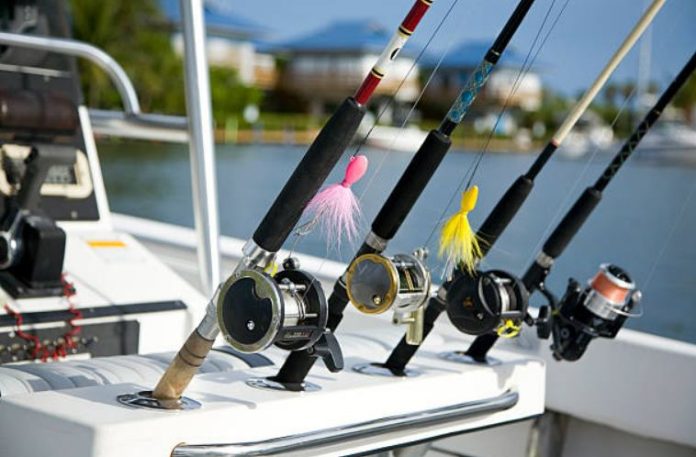While technique and experience are doubtless the most important things that you need when you go fishing, you can’t ignore the importance of your fishing tackle either.
Expert or not, you can’t catch fish with bare hands. You need equipment, and the higher its quality, the better chances you have of landing fish.
So what basic equipment do you need on a fishing trip? First, of course, is the rod. Rods come in many shapes and sizes suited for many different types of location, styles of fishing and varieties of fish.
Fly fishing rods, for instance, can be anything between 6 and 14 feet long, depending on where, how, and what you want to fish.
If most of your fishing is going to be done in salt water, choose a short rod to be better able to negotiate the swift currents and strong winds.
Freshwater rods are longer because they suit the casting or flipping styles of fishing better. Especially when you’re standing on the bank, you need to be able to reach places where the fish are likely to congregate.
Lures, baits and flies form the other important class of things that you need to buy before you go on a fishing trip.
Some people prefer to roll their own, so to speak when it comes to bait, but beginners should stick to what is on offer at the stores.
While buying, remember that the basic idea is to offer something to the fish that it will accept as food.
It is obvious that this will not be the same for all species. Different types of fish eat different things, and their diet also changes according to the season and locality.
What salmon eat when they’re out at sea is completely different from what they eat when they’re moving upriver towards the spawning ‘grounds‘. Match your bait and lure to your fishing plans to increase success rates.
Modern angling technology offers you a number of ways to convince the fish about the authenticity and attractiveness of your bait as food.
For instance, some mysterious factor causes steelhead trouts to greatly prefer the colors orange and chartreuse (a greenish-yellow, if you didn’t know).
Consequently, these are on offer at stores, and buying some may increase your chances of success.
The sense of smell is also well developed in certain predating and scavenging species, and you can take advantage of this by purchasing some of the ‘scents‘ which, when spread on water, are supposed to attract fish near you.
And then there are artificial lures or ‘crankbaits‘ that imitate the action of wounded prey, making them irresistible to hunting species like pike and bass.
Also among the list of essentials are hooks and reels, lines and floats, weights and leaders but this space is not enough even for a brief introduction to each of them.
Talk to experts, read up on the place you’re visiting and the species you’re targeting and generally raise your level of awareness about this ancient art before you start buying stuff.

